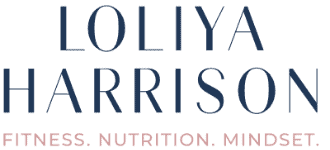I don’t know about you, but I love my morning coffee.
One of the first things clients say to me when we start working together is “please don’t tell me to give up coffee!”
Recently I listened to this podcast by Nicki Williams describing the health benefits of your caffeinated beverage.
There were some surprises.

What Are The Health Benefits of Coffee?
Coffee contains over 1000 active plant compounds that have anti-inflammatory and antioxidant properties, which help regulate the immune and detoxification pathways.
This is great for perimenopause because the protective effects of oestrogen on the immune system start to reduce giving the liver more work to do. Anything that supports detoxification is going to support the liver.
Studies have shown that regular coffee drinkers have a reduced risk of alzheimers and cancers, 25% reduced risk of getting Parkinsons, 29% reduced risk of developing fatty liver disease.
Contrary to what we might read on social media, studies have also shown regular drinkers to have a reduced risk of developing diabetes II and that cortisol levels are not affected by coffee – although I think genetics play a part here and it depends on how good you are at metabolising it.

Do We Actually Need The Caffeine in Coffee?
Generally it is not the caffeine itself that provides health benefits but the actual plant compounds, called polyphenols, found in coffee.
The good news is, if you are sensitive to caffeine (and some people are due to their genes) decaffeinated options have the same benefits 99% of the time.
One thing to note: apparently caffeine itself does provide health benefits for Parkinson’s disease.
Interestingly, caffeine can trigger hot flushes in perimenopausal women but the polyphenol compound, chlorogenic acid, found in coffee, reduces hot flushes. It could be that if you are prone to hot flushes you need more of chlorogenic acid to counteract the caffeine.

Is All Coffee The Same?
According to Alex Higham founder of Exhale Coffee 90-100% of coffees contain some level of toxins called microtoxins. Our body, namely our liver, can deal with small amounts of mycotoxins but health problems arise when we are exposed to large amounts.
In perimenopause, the liver is already working harder than normal so it is probably better to keep these microtoxins as low as possible. Organic coffee contains a lot less. But it is twice the price!
A word about decaffeinated options, however. In order to remove caffeine, many processes involve the use of solvents. Alex Higham suggests avoiding beans that have been decaffeinated with solvents. Opt for decaffeinated beans that use a water or carbon dioxide method.

So, You’re Keeping Coffee – What’s The Best Way To Drink It?
- Have it during or after breakfast, when you are relaxed and calm, rather than first thing in the morning – this helps to counteract the jitteriness of caffeine – if you are sensitive to it.
- Black coffee is best.
- Opt for decaffeinated if you know you are sensitive to caffeine or you can mix ½ caffeinated and ½ decaffeinated.
- Drink your coffee before 12 noon to avoid sleep interference.
- Buy organic whenever possible to keep the amount of microtoxins low.
- 3-5 cups a day is the sweet spot – gives you the best health benefits.

How Do You Drink Yours?
I’m not a fan of black coffee but I have mine with MCT oil sometimes and it is delicious. I also have a coffee-free week every month.
I’d love to know your favourite way of enjoying coffee, or whether you are trying to find any alternatives!
Let me know in the comments below.
If you enjoyed this article you might enjoy these from the archive:
When Should You Be Concerned About Perimenopause Symptoms?
HRT Has A Bad Reputation. Let’s Set The Record Straight!



0 Comments